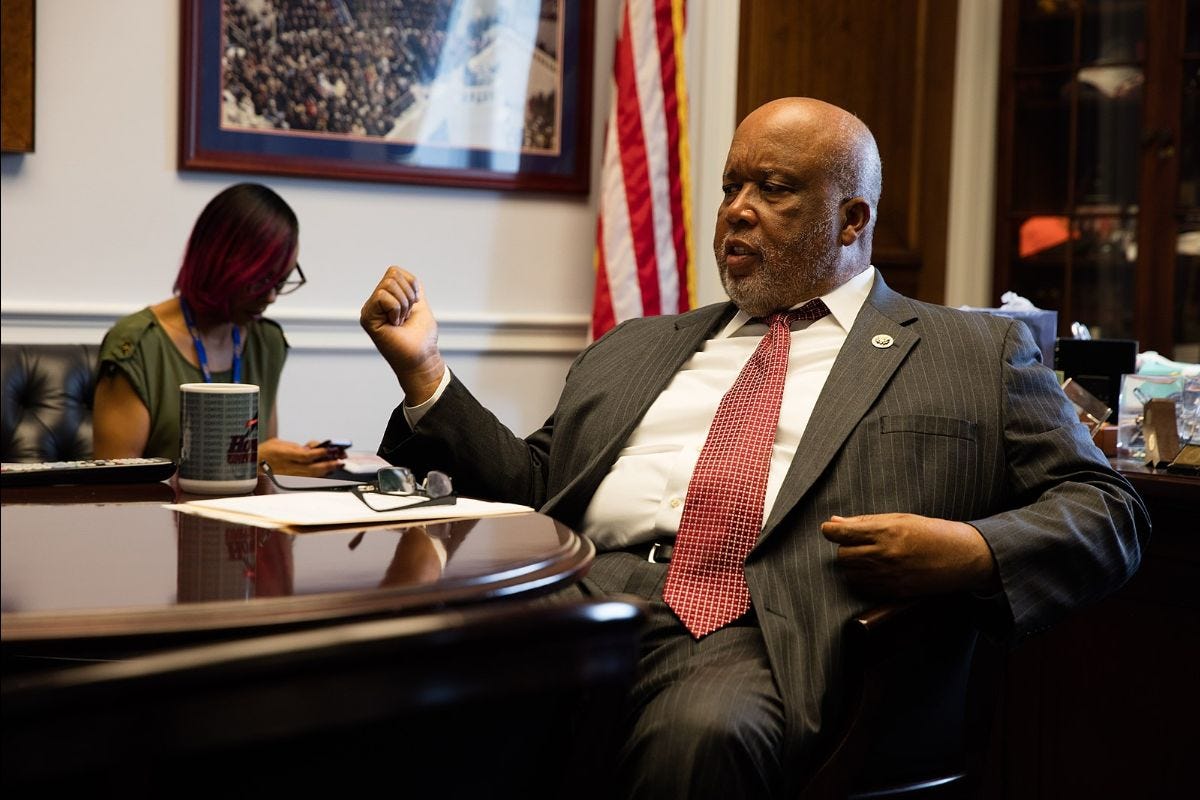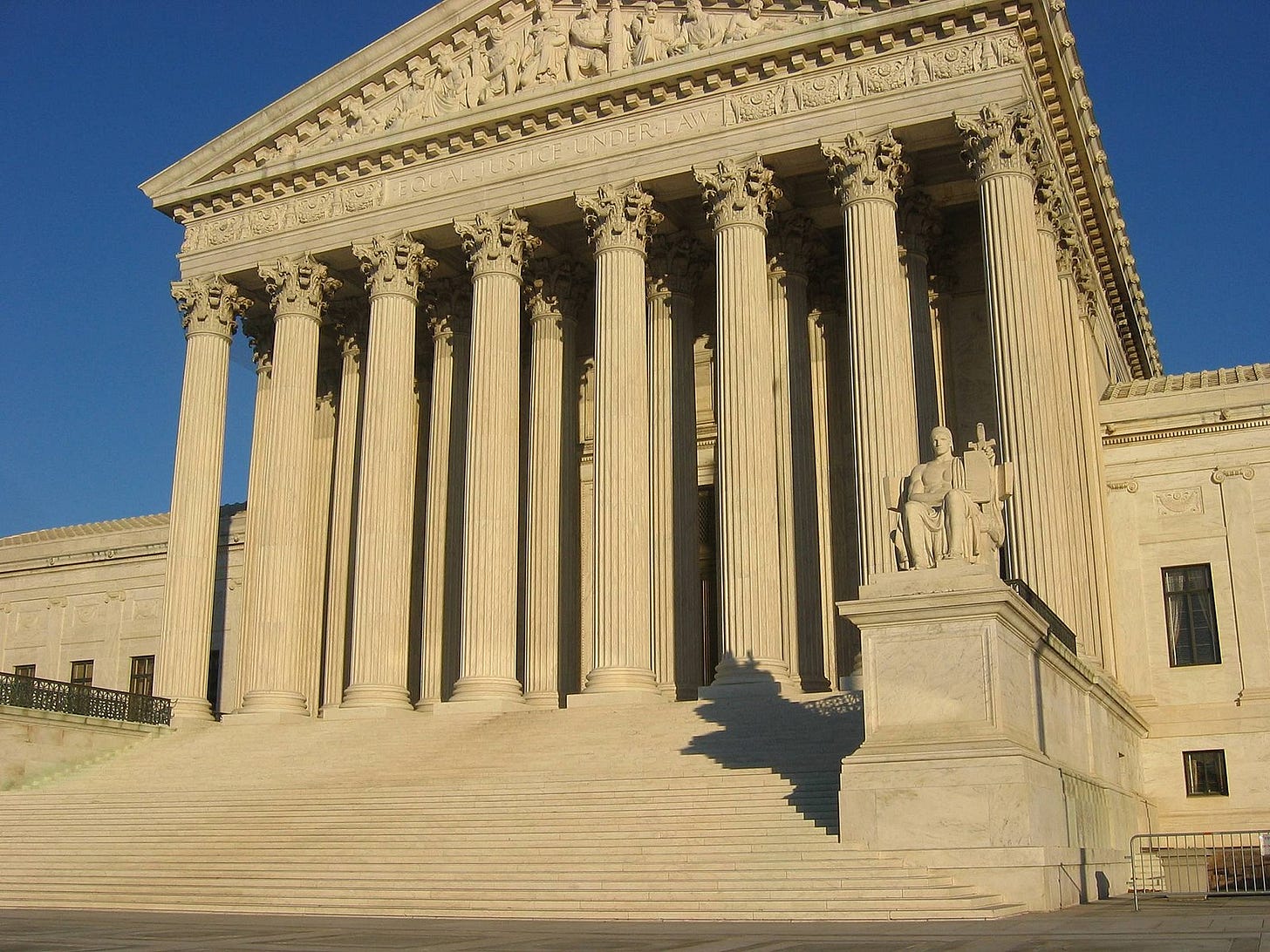Wake Up To Politics - October 15, 2021
Wake Up To Politics: Jan. 6 committee plans to hold Bannon in contempt
Good morning! It’s Friday, October 15, 2021. Election Day 2024 is 1,117 days away. Election Day 2022 is 389 days away.
January 6 committee to hold Steve Bannon in criminal contempt
Ever since the House majority changed hands in 2019, Democrats in the chamber have faced a familiar pattern when they’ve attempted to conduct oversight of the Trump administration.
Here’s how it’s almost always gone: A committee issues a subpoena for testimony or documents, Trump invokes executive privilege, the panel’s request go ignored. Sometimes, a committee will take the dispute to court, but the ensuing legal battles have taken years to get resolved.
But now, suddenly armed with allies in the Justice Department, Democrats are hoping to change that pattern as they investigate the worst attack at the U.S. Capitol in over 200 years.
On Thursday, the House select committee investigating the January 6 attack saw the same old pattern begin to be played out. The panel had issued a subpoena calling for former White House chief strategist Steve Bannon to appear for a deposition that day. Under instructions from Trump, Bannon refused to appear.
Instead of laying dormant, the committee is moving quickly to respond to Bannon: Chairman Bennie Thompson (D-MS) announced that the panel will meet Tuesday to move forward with holding the prominent Trump ally in criminal contempt.
“The Select Committee will use every tool at its disposal to get the information it seeks, and witnesses who try to stonewall the Select Committee will not succeed,” Thompson said in a statement.
Criminal contempt is one of the three types of contempt powers Congress has. If someone is ignoring a committee’s subpoena, the House can refer a criminal contempt charge to the Justice Department, which then decides whether or not to convene a grand jury. If the DOJ decides to move forward with a criminal prosecution, the person could be convicted for contempt of Congress, which can be punished with a fine and up to a year in prison.
The other types of contempt are civil contempt (which involves the House or Senate bringing a civil lawsuit against the person flouting a subpoena) and inherent contempt (which involves a chamber’s Sergeant-at-Arms taking the person into custody themselves).
Attorney General Merrick Garland will be the big decision-maker in this process. The January 6 committee will vote on Tuesday to hold Bannon in contempt — a stance even the panel’s two Republicans seem poised to take. “The committee is completely in solidarity,” Rep. Liz Cheney (R-WY), who was appointed to the panel by Democrats, told CNN.
Then, the committee’s charge is referred to the full House for a vote. If the Democratic-led House sides with the committee, a contempt referral is sent to the Justice Department, which then decides whether or not to move forward with a grand jury.
Trump and Bannon are arguing that they are protected by executive privilege, the doctrine that shields presidents and their advisers from many congressional subpoenas. But it is unclear whether former presidents can claim executive privilege as well: it will be up to Garland, who has sided with Trump in some disputes in the past, to decide whether to accept Bannon’s arguments or to prosecute him for contempt.
If Garland does move to charge Bannon with contempt, it would be a break with recent history — and not just since the Trump era. Although various Executive Branch officials have been referred for contempt by the House during recent administrations, the sitting administration has generally protected its own officials and declined to pursue charges. (The difference this time is that the Justice Department is controlled by a different administration than the one of the official facing possible contempt.)
The last person charged with criminal contempt of Congress was Rita Lavelle, who served as assistant administrator of the Environmental Protection Agency under Ronald Regan. Lavelle was cleared by a grand jury in 1983 for the contempt charges, although she was later found guilty of lying to Congress and sentenced to jail.
What else you should know
— A federal appeals court ruled that Texas’ restrictive abortion law can remain in place while a legal battle over its enforcement continues to wind its way through the judicial system.
— Sen. Kyrsten Sinema reportedly told lawmakers that she would be hesitant to endorse the Democratic spending package until the House approves the bipartisan infrastructure deal, further complicating the party’s hopes of passing the two bills.
— President Biden is likely to nominate former Food and Drug Administration (FDA) Commissioner Robert Califf to return to his old post, multiple news outlets have reported. Califf previously served as FDA chief during the Obama administration; his second tour at the agency would involve a number of decisions related to coronavirus treatments and vaccine booster shots.
— A White House commission to probe possible Supreme Court reforms will issue its initial findings today. According to draft materials, the panel seems to have found consensus in favor of creating new term limits for Supreme Court justices but remained divided on whether more seats should be added to the bench. The commission’s role is merely advisory; it is ultimately up to Congress. to make such changes to the court.
Daybook
All times Eastern.
WHITE HOUSE
President Joe Biden will receive his daily intelligence briefing at 9:30 a.m. Then, at 11 a.m., he will depart the White House; at 12:40 p.m., he will arrive in Hartford, Connecticut. At 1:45 p.m., he will deliver remarks in Hartford on his “Build Back Better” agenda and investing in child care.
At 4 p.m., Biden will deliver remarks at the dedication of the Dodd Center for Human Rights at the University of Connecticut. The center is being renamed for Biden’s longtime friend and onetime colleague, former Sen. Chris Dodd (D-CT), and his father Sen. Thomas Dodd (D-CT). At 5 p.m., Biden will depart Connecticut; at 7 p.m., he will arrive back at the White House.
Vice President Kamala Harris is in Los Angeles for the weekend and has no public events scheduled.
White House Principal Deputy Press Secretary Karine Jean-Pierre will hold a press gaggle aboard Air Force One during the flight to Connecticut.
The Presidential Commission on the Supreme Court will hold a public meeting at 10 a.m. to discuss its initial findings. The commission was charged with President Biden to offer recommendations on various proposals for reforming the Supreme Court, including adding more justices or giving the justices term limits.
CONGRESS
The Senate has no votes scheduled until Monday, October 18.
The House will briefly convene at 12 p.m. for a pro forma session, without conducting any business. The chamber has no votes scheduled until Tuesday, October 19.
COURTS
The Supreme Court justices will meet for their weekly conference.
PUBLIC HEALTH
The FDA’s Vaccines and Related Biological Products Advisory Committee will meet at 8:30 a.m. to discuss Johnson & Johnson’s application for an Emergency Use Authorization (EUA) for its COVID-19 vaccine booster shots.
The advisory committee meeting is generally the final step before the FDA decides whether or not to authorize a new shot; the agency almost always follows the committee’s recommendation.
Thanks for waking up to politics! If you enjoy reading this newsletter, I’d be so grateful if you’d consider donating to help support me and my work. If you want to show off your support for Wake Up To Politics, you can also buy some merchandise.
Also: don’t forget to tell your friends and family to sign up for the newsletter at wakeuptopolitics.com. And if you have any questions or comments, feel free to email me at any time.






